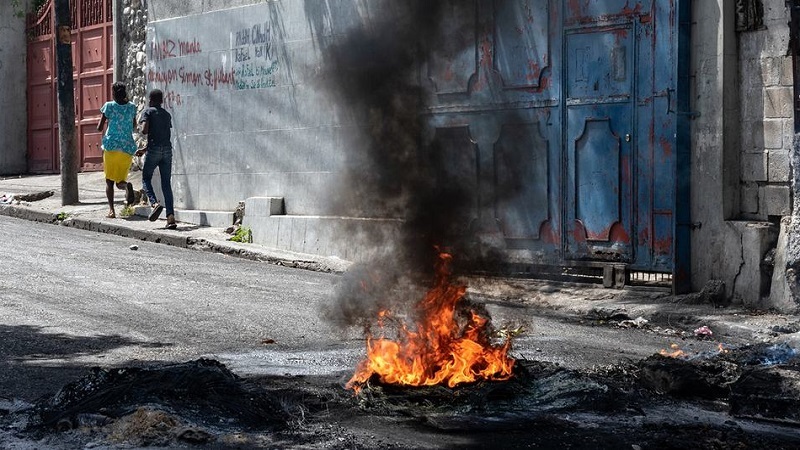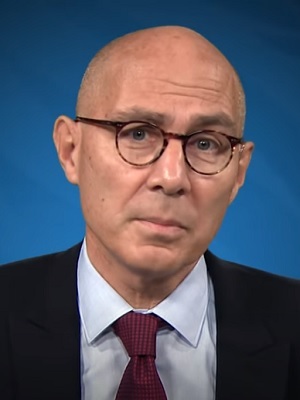U.N. Human Rights High Commissioner Volker Türk calls on the international community to aid in Haiti. | youtube.com/watch?v=8NoWBtb-e_E
The United Nations' (U.N.) high commissioner on human rights has reiterated his call for the international community to intervene in Haiti to end the spiraling rise of gang violence in the poverty-stricken Caribbean nation.
U.N. Human Rights High Commissioner Volker Türk's call came soon after the U.N. issued a report that more than 600 people were killed last month alone in violence in the country’s capital. The report, based on information gathered by the U.N. Integrated Office in Haiti (BINUH), said least 846 people were killed in gang-related violence the first three months of this year.
"I reiterate my call on the international community to deploy a time-bound, specialized and human rights-compliant support force, with a comprehensive action plan to assist Haiti's institutions," Türk said.

A United Nations' image of two people passing through the Turgeau district in Haiti's capital of Port-au-Prince shows debris burning behind them.
| news.un.org/
The U.N. report issued by BINUH and the U.N. Human Rights Office noted a rise in mob killings and lynchings of people accused of being gang members in Haiti. Overall, the number of killings, injuries and kidnappings increased 28% in the first quarter of the year, with a total of 1,634 cases reported in that time.
Findings in the report, issued May 9, attributed the trend to the emergence of vigilante groups formed in response to calls from political figures and journalists to take matters into their own hands to combat gang violence.
"Every report I get from Haiti underlines the scale of the suffering, and rams home the message that Haitians need urgent support, and they need it now," Türk said.
The United Nations human rights chief emphasized that the poverty and absence of fundamental services were significant underlying factors contributing to the influence of gangs over Haiti.
Türk said Haitians should be able to rely on their government, police and the judiciary "to tackle gang violence" but that's not what's happening. "The reality is that the state does not have the capacity to respond," he said.
The U.N. World Food Programme (WFP) had previously cautioned that about 4.9 million Haitians, half the country's population, faced difficulties in obtaining food earlier this year.
"People are taking the law into their own hands, but this will only fuel the spiral of violence," Türk continued. "We must not forget that extreme poverty and the lack of basic services lie at the root of the current violence and of the gangs' power over communities. The government, with support from the international community, must do its utmost to comply with its obligation to provide people with regular and unimpeded access to clean water, food, health and shelter."





